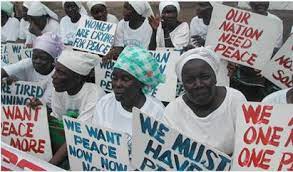Recent findings in Liberia have highlighted a concerning trend regarding obesity rates among women, who are gaining weight at a faster rate than men. According to the Global Nutrition Reports of 2021, approximately 16.5% of women aged 18 and over in Liberia are classified as clinically obese, contrasting sharply with just 6.7% of men in the same age category. This discrepancy raises significant health concerns, as it is indicative of broader dietary challenges faced by the female population in the country. While this obesity prevalence is lower than the regional averages of 20.8% for women and 9.2% for men, it underscores the pressing need for targeted public health measures.
Alongside rising obesity rates, the study also indicated a troubling increase in diabetes among both genders. The data suggests that about 9.3% of adult women and 9.2% of adult men are now affected by this non-communicable disease. The convergence of obesity and diabetes signals a dual public health challenge that Liberia must tackle to improve health outcomes. The issue is particularly concerning considering that the country has been making limited progress towards achieving established diet-related non-communicable disease (NCD) targets, reiterating the urgency for effective intervention measures.
The gravity of the situation was brought to light during the launch of the Comprehensive Food Security and Nutrition Survey (CFSNS), as Agriculture Minister Alexander Nuetah disclosed alarming statistics regarding food insecurity in Liberia. Approximately 2.2 million people, equating to 47% of the country’s population, are currently classified as food insecure. This distressing figure not only highlights the prevalence of hunger but also suggests a systemic failure in the food distribution and nutritional support systems within Liberia. Malnutrition remains a serious concern, especially among children, with roughly 29% of those under five years suffering from chronic malnutrition and an additional 4% experiencing acute malnutrition.
The implications of such statistics necessitate a focused and collaborative approach from both local and international stakeholders in the pursuit of effective solutions. Minister Nuetah emphasized the need for decisive action to address the intertwined issues of obesity, diabetes, and food insecurity. The CFSNS aims to facilitate comprehensive data collection and analysis through a multi-sectoral methodology, which is essential for identifying the specific needs and vulnerabilities of the population. By employing such an approach, the government seeks to enhance the understanding of nutrition-related challenges and develop interventions tailored to the diverse needs of the community.
To combat these rising health concerns and their roots in food insecurity, the CFSNS is critically important. By focusing specifically on food security status and nutritional needs across Liberia, the survey represents a strategic initiative designed to gather essential information for policy-making. This proactive measure is intended to guide efforts aimed at improving nutritional education, food access, and overall public health strategies within the country. With a continued emphasis on collaboration and the implementation of informed policies, there may be hope for reversing the trend of rising obesity rates among women and achieving better health outcomes for all citizens.
In conclusion, the findings from Liberia’s Comprehensive Food Security and Nutrition Survey reveal a complex interplay of increasing obesity rates among women, rising diabetes prevalence, and widespread food insecurity. The current public health trends highlight the need for a comprehensive approach to tackle these interconnected issues. By engaging various stakeholders while investing in education, screening, and access to nutritious food, Liberia can work towards a healthier future and establish the groundwork for sustainable health improvements. The challenges are substantial, but with strategic planning and collaboration, there is potential for positive change in the nation’s health landscape.


